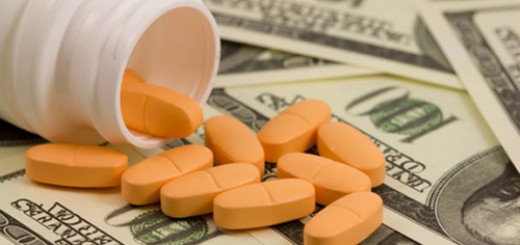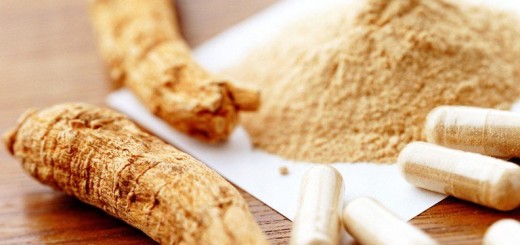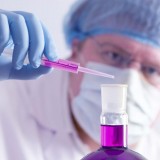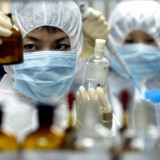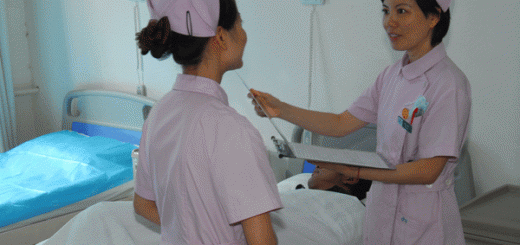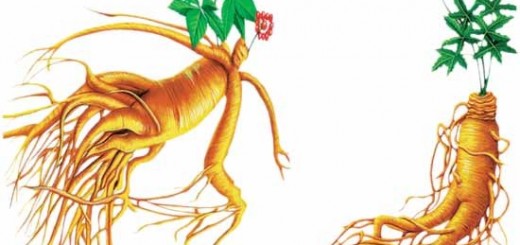Depression is a state of low mood and aversion to activity that can affect a person’s thoughts, behavior, feelings and sense of well-being. Depressed people can feel sad, anxious, empty, hopeless, worthless, alone, or restless. They may lose interest in activities that were once pleasurable, experience loss of appetite or overeating, have problems concentrating, remembering details or making decisions, and may contemplate, attempt or commit suicide. Globally, more than 350 million people of all ages suffer from depression. More women are affected by depression than men.
There is a wide range of antidepressant medication available, including 1) Selective serotonin reuptake inhibitors [SSRIs: fluoxetine (Prozac), paroxetine (Paxil), sertraline (Zoloft), citalopram (Celexa) and escitalopram (Lexapro)]. 2) Serotonin and norepinephrine reuptake inhibitors [SNRIs: duloxetine (Cymbalta), venlafaxine (Effexor XR) and desvenlafaxine (Pristiq)]. 3) Norepinephrine and dopamine reuptake inhibitors [NDRIs: Bupropion (Wellbutrin)]. 4) Atypical antidepressants [vilazodone, trazodone and mirtazapine (Remeron)]. 5) Tricyclic antidepressants [imipramine (Tofranil) and nortriptyline (Pamelor)]. 6) Monoamine oxidase inhibitors [MAOIs: Selegiline (Emsam), tranylcypromine (Parnate) and phenelzine (Nardil)].
Medication may help relieve some of the symptoms of moderate and severe depression, but it doesn’t cure the underlying problem, and it’s usually not a long-term solution. Antidepressant medications also come with side effects and safety concerns, and withdrawal can be very difficult.
Latest research demonstrated that Rg1, one of active ingredients of Asian ginseng, is able to improve behaviroral changes in depressed rats, meanwhile, no serious adverse effects were observed. Due to its high efficacy and safety, ginsenoside Rg1 could be a promising natural drug of choice for depression in human.
The research findings were published on 2012, 37(20).
Title: Effect of ginsenoside Rg1 on behaviors and hippocampal amino acids in depressive-like rats
Abstract:
Objective: To observe the effect of ginsenoside Rg1 on behavior and hippocampal amino acids in depressive-like rats.
Method: SD rats were randomly divided into 5 groups: control, model, fluxetine, low dose ginsenoside Rg1 and high dose of ginsenoside Rg1. The chronic unpredictable mild stress (CUMS) was performed to induce depressive-like animal model. Fluxetine group was orally given fluxetine in dose of 10 mg·kg-1 for 21 days, low dose ginsenoside Rg1 group was orally given ginsenoside Rg1 in dose of 20 mg·kg-1 for 21 days, high dose ginsenoside Rg1 group was orally given ginsenoside Rg1 in dose of 40 mg·kg-1 for 21 days. The control and model group was orally given saline for 21 days. The sucrose consumption was detected before and after the CUMS procedure. The horizontal and vertical activities of rats were determined by open-field test. HPLC was adopted to detect the contents of amino acids in hippocampus.
Result: The sucrose consumption, horizontal and vertical activities in CUMS rats were decreased compared with those in control group. Compared with control group, the contents of glutamate (Glu) and aspartate (Asp) in hippocampus of CUMS group were increased, while the gamma amino butyric acid (GABA) and taurine (Tau) were decreased. Ginsenoside Rg1 treatment significantly increased the CUMS-induced decrease in sucrose consumption, horizontal and vertical activities. Administrated with ginsenoside Rg1 also decreased Glu and Asp and increased the GABA and Tau in hippocampus in a dose dependent manner.
Conclusion: Ginsenoside Rg1 could alleviate the behavior changes of depressive-like rats, which might be related to regulate the levels of amino acids in hippocampus during CUMS and prevent the neuro-toxicity of excitatory amino acids.
















